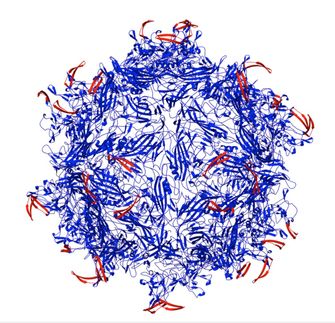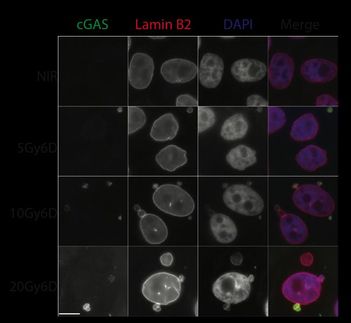Common anti-inflammatory drug could help prevent skin cancers, Stanford researcher says
Advertisement
A widely-available anti-inflammatory prescription drug can reduce the risk of a common skin cancer in humans, according to a researcher at Stanford's School of medicine. Although oral administration of the drug, celecoxib, is associated with an increased risk of heart attack and stroke in some people, it's possible that topical application could have a safer, protective effect for people prone to developing the cancers, called basal cell carcinomas, the researcher believes.
"Basal cell carcinomas are the most common human cancer in the United States," said Jean Tang, MD, PhD, assistant professor of dermatology, "and their incidence is increasing steadily. This work identifies a possible way to prevent them." She and her colleagues dovetailed studies in mice with a randomized, double-blinded clinical trial in humans to reach their conclusions.
Tang was an assistant professor at UC-San Francisco and Children's Hospital Oakland when the trial was conducted. She is the lead author of the research, which will be published in Cancer Prevention Research. Tang also recently published a separate study in Cancer Causes Control showing that elderly men with relatively high levels of Vitamin D in their blood were less likely to develop non-melanoma skin cancer than were men with lower levels of the vitamin.
For the current research, Tang and her colleagues capitalized on a previous finding suggesting that celecoxib, which belongs to a class of drugs known as non-steroidal anti-inflammatory drugs, or NSAIDs, can inhibit the development of a different kind of skin cancer, squamous cell carcinoma, in mice. They wondered if the drug, sold by the pharmaceutical company Pfizer under the brand names Celebrex and Onsenal, would have a similar effect on the more common basal cell carcinoma. Despite ongoing efforts urging people to wear sunscreen and avoid ultraviolet radiation from sun exposure, the incidence of basal cell carcinoma is increasing rapidly in this country, even in younger people.
The researchers enrolled 60 people with a genetic predisposition to basal cell carcinoma in a double-blinded, randomized, three-year clinical trial. People with the disorder, called basal cell nevus syndrome, spontaneously develop hundreds of skin cancers throughout their lifetimes and must be closely monitored by a dermatologist. About half the patients received 200 mg celecoxib twice a day in a pill format, while the others received a placebo. All patients were monitored at three-month intervals at one of four study sites for the development of new basal cell carcinomas or the growth of previously identified cancers.
Celecoxib is thought to work to prevent or slow cancer growth by interfering with the action of an enzyme called Cox-2, which causes tissue inflammation. Celecoxib has both pain-killing and anti-inflammatory properties. Chronic inflammation has long been associated with the development of many types of cancer, and celecoxib has been shown in clinical trials to reduce the incidence of colon cancer in people with a genetic predisposition to the disease.
Before conducting the human trial, the researchers used a mouse model to test whether Cox-2 was involved in basal cell carcinoma. The mice had a genetic mutation similar to that of people with basal cell nevus carcinoma and developed numerous basal cell cancers after exposure to ionizing radiation. Tang and her colleagues found that deleting the Cox-2 gene in these mice reduced their overall tumor burden by 70 percent. Conversely, the overall size of the tumors doubled in mice engineered to express higher than usual amounts of Cox-2.
"We wanted to see if we could have the same effect pharmacologically," said Tang, who then fed the mice with regular doses of celecoxib to inhibit Cox-2. Sure enough, she found that giving the mice the drug reduced their tumor burden by 35 percent.
























































